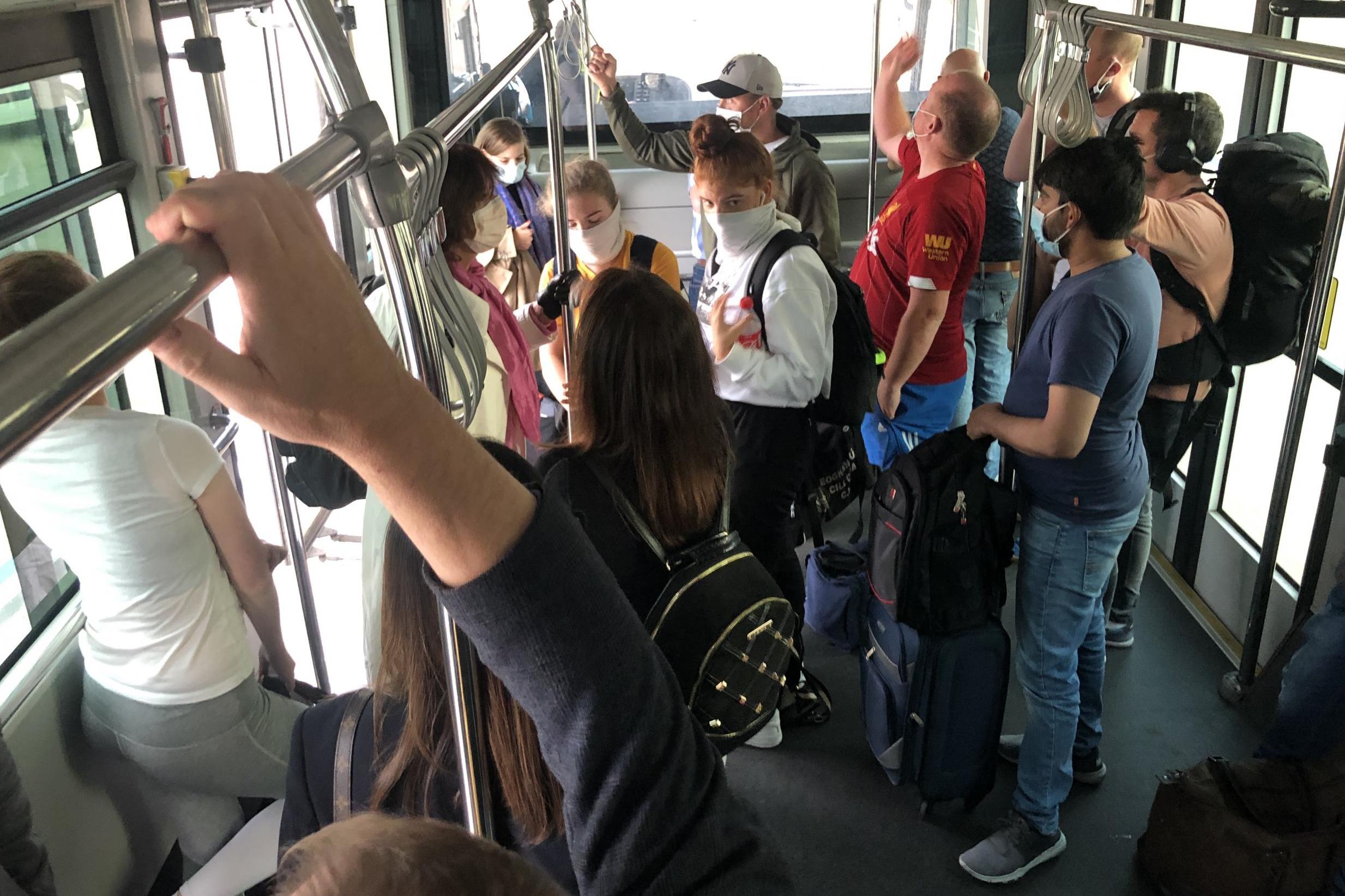This website uses cookies so that we can provide you with the best user experience possible. Cookie information is stored in your browser and performs functions such as recognising you when you return to our website and helping our team to understand which sections of the website you find most interesting and useful.

By now, I am up to seven flights, in and out of nine airports on four different airlines. So I hope I can help you understand the new age of the plane.
My flying career resumed on 15 June at the same moment as easyJet’s, with a flight from Gatwick to Glasgow. I followed that up with a Ryanair hop from Edinburgh to Dublin, and another from the Irish capital to Bristol.
It made a welcome change to reach Northern Ireland by train and ferry, but I flew back from George Best Belfast City on Aer Lingus to Heathrow.
Next up: Ryanair from Gatwick to Dublin, and easyJet from Belfast International back to the Sussex airport.
Finally, British Airways from Heathrow to Nice – and my first continental adventure since leaving Luxembourg in the last few hours of February.
Two common themes became clear. First, the meticulous professionalism of the flight crew and ground staff, which is all the more commendable given the future uncertainties for anyone working in aviation. Second, the sheer incompatibility of flying on scheduled airlines with social distancing; anyone who has concerns about close contact with strangers should avoid flying, even though everyone wears masks.
Beyond those broad brushstrokes, the detail may intrigue you.
First, on schedules and fares. The industry has moved backwards to a time where the passenger is expected to fit in with the airline. The days of departures to Dublin every half-hour are over for now, and the breadth of choice from Northern Ireland’s two main airports, Belfast International and the City airport has vanished – partly because of the sad demise of Flybe and the inability to fill the vacuum during lockdown.
Likewise, when planning my return from Nice on Wednesday, I am faced with a choice of just two non-stop flights: British Airways at lunchtime to Heathrow, Ryanair late at night to Stansted.
That is also a good illustration of the ways that fares are behaving: oddly. British Airways wants £247 from Nice to London, compared with just £39 on Ryanair.
Flying out on Sunday, when BA was the only game in town, the carrier wanted £634 for the two-hour hop; I bought four hours in advance with Avios, paying about £110 based on my valuation of the airline’s frequent-flyer points.
Airlines are caught between doing all they can to recoup the catastrophic losses they have endured since March, and wanting to stimulate travel. Add to this the rational travel decision to book everything as late as possible, and you can anticipate paying either far more than you would like or far less than you might expect this summer.
The days of filling planes to 90 per cent or beyond are gone for now. The first easyJet flight would have had just a handful of passengers were it not for the journalists and several dozen off-duty airline staff on board. As time has gone on, loads have steadily increased, with Heathrow-Nice the fullest at about two-thirds of capacity.
In the circumstances, everyone could have enjoyed an empty middle seat – but the seat-allocation process didn’t quite achieve that. I was placed in 20A, with B and C already filled, so I continued to 29C – with the adjacent seat empty.
The inflight offer is really important, with between zero and a few airport catering outlets open. Each airline has its own style. Aer Lingus and easyJet offer a glass of water if you ask. British Airways gives everyone a bag containing a bottle of water, a packet of crisps and a biscuit.
Created with Sketch.
Created with Sketch.
1/11 Ben Gurion International airport, Israel
Reuters
2/11 Daxing International Airport, Beijing
AFP via Getty
3/11 Taoyuan International Airport, Taiwan
EPA
4/11 Noi Bai International Airport, Vietnam
AFP via Getty
5/11 Haneda Airport, Tokyo
Reuters
6/11 Changsha Huanghua International Airport, China
Reuters
7/11 Shanghai Pudong Airport in Shanghai, China
EPA
8/11 Daxing International Airport, Beijing
AFP via Getty
9/11 Haneda Airport, Tokyo
Reuters
10/11 Shanghai Pudong Airport in Shanghai, China
EPA
11/11 Noi Bai International Airport, Vietnam
AFP via Getty
1/11 Ben Gurion International airport, Israel
Reuters
2/11 Daxing International Airport, Beijing
AFP via Getty
3/11 Taoyuan International Airport, Taiwan
EPA
4/11 Noi Bai International Airport, Vietnam
AFP via Getty
5/11 Haneda Airport, Tokyo
Reuters
6/11 Changsha Huanghua International Airport, China
Reuters
7/11 Shanghai Pudong Airport in Shanghai, China
EPA
8/11 Daxing International Airport, Beijing
AFP via Getty
9/11 Haneda Airport, Tokyo
Reuters
10/11 Shanghai Pudong Airport in Shanghai, China
EPA
11/11 Noi Bai International Airport, Vietnam
AFP via Getty
Ryanair will sell you a hot lasagne at 7am if you so desire. And not even a global pandemic has put paid to the scratch-card ritual on Europe’s biggest budget airline. No hot drinks, mind.
With friendly, helpful crew, and early arrivals the norm due to the absence of other traffic, I have found flying an entirely positive experience – with a lack of airport facilities and the obligation to wear a mask the only concerns.
But the arrival experience could be improved. At Bristol airport, the quarantine check from Ireland (in case anyone was performing the “Dublin Dodge” to avoid 14 days of self-isolation) requiring everyone to stand cheek-by-jowl on the transfer bus while social distancing was solemnly observed within the terminal, ensures that the risk of cross-infection was vastly increased because of trying to reduce an already very small risk.
If, as it appears, quarantine is dissolving into derision, flying should be safer – though never completely safe.



 Africana55 Radio
Africana55 Radio 

